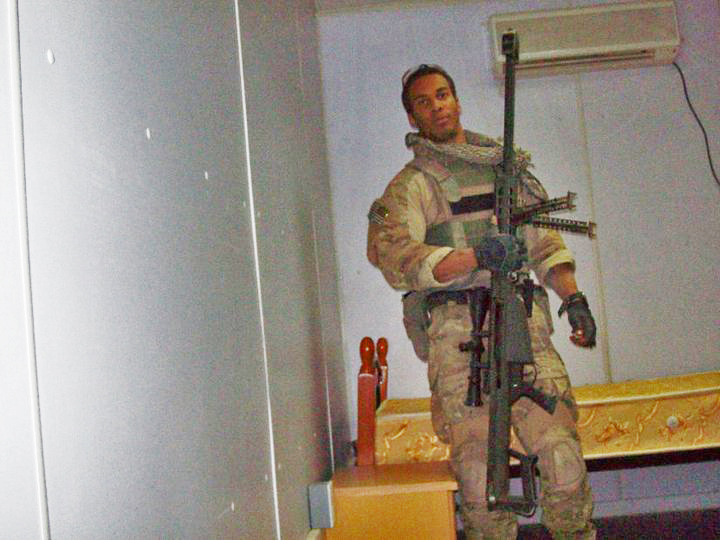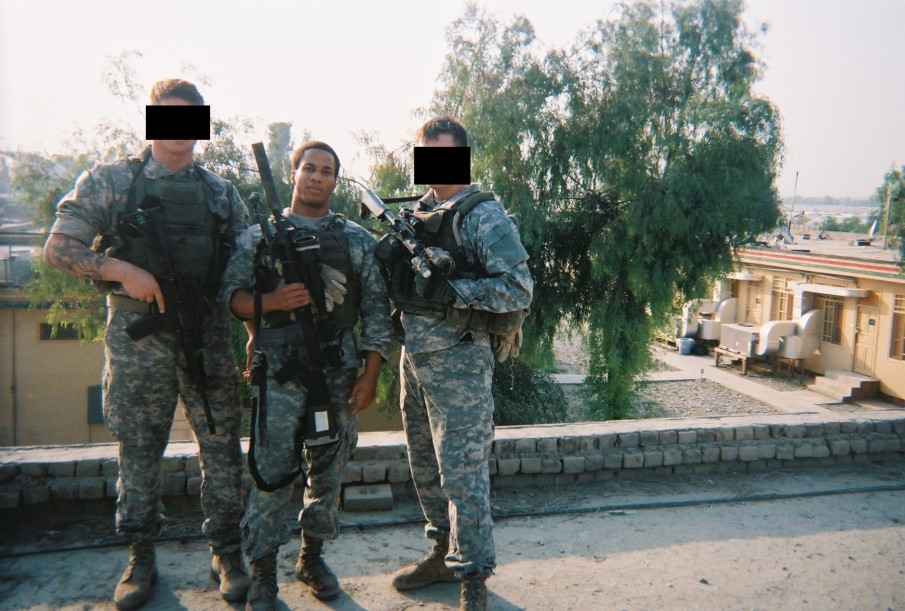I want to personally thank Nick Irving for writing this piece for SOFREP; it’s an important topic and his perspective is extremely valuable.
In the Special Ops community racism and bias surely still exists but with far less frequency then what is still found in American society. One of the biggest gifts of being in a military unit is that it’s a mash of cultures, backgrounds, religion, and race, all playing for the same team. This environment does a lot to kill any inherent bias people drag around with them.
So thank you Nick, we’re all cut from the same cloth in Special Operations, you would have made a damn good SEAL, and I’m proud to call you a brother.
Brandon, Editor
I’m sure most have read the article by Blake Miles, “Race Relations in the Team Room.” I thought it was a great article that really helped shed some light on the type of individuals that make up our nation’s finest. After reading some of the comments and receiving emails asking for my input on what I thought about the topic, I was more than happy to give my perspective on race in our community.
Out of my Ranger R.I.P (Ranger Indoctrination Program) class, there were around 70 men who wanted to become Rangers of the 75th Ranger Regiment. Out of those men, eight were African American, including myself. For some strange reason, and conforming to the well-known stereotype, all of the African American men failed the swim test. There were a few laughs from the class, including a few laughs of my own at the fact that they all had failed the swimming portion of selection, and let it be known that they were not the only ones to fail. I don’t think it had anything to do with their color pigmentation, nothing at all. If it did, it would be the first time I’ve ever heard of a “color” that swam better than others.
I think where the individual grew up had a lot to do with it. Most African American males who join the military and pursue a career in Special Operations grow up in urban environments. In fact, according to a study conducted last year, over 60% of African Americans lived in metropolitan areas in the US. Although I did grow up in the city, my lifelong dream was to become a Navy SEAL. My dad would drive me two hours to the beach every week to run 4 miles on the sand and swim in the ocean.
The reason that I did not become a SEAL was not due to failing any standards, it was due to a medical issue with which I was born: I’m color blind. Thanks to an increasing demand for soldiers in the Army during the beginning phases of the war, and a nurse who was willing to “change” a few documents after seeing how depressed I’d become after having my dream of being a war fighter faded, I am where I am today.

By the end of the class, there were only seven men left standing who received the tan beret. At no point did anyone say, “Wow, you’re a black guy and you made it!” In fact, it was the exact opposite. I was excepted into an elite fraternity and treated as an individual without color.
Being in a group who all had to endure the same pain that the man standing next to him had to endure, eat the same mud in foreign countries, etc., there is a different level of equality unlike what we see in the everyday lifestyle of America. I never once had to say to myself, “I hope this guy on my team will still have my back because I’m black.” If I ever felt that way or he displayed that personality, I know with 100% certainty that the individual would be removed from the unit.
Already have an account? Sign In
Two ways to continue to read this article.
Subscribe
$1.99
every 4 weeks
- Unlimited access to all articles
- Support independent journalism
- Ad-free reading experience
Subscribe Now
Recurring Monthly. Cancel Anytime.
I can recall on one occasion in downtown Auburn, GA where my squad went out for a few drinks at a well-known bar. All seemed well until some college kid decided to throw a racial slur towards me. Sure, I was the only black guy at this bar, but I felt safe with my guys. Before I had a chance to respond to the individual, the guys from my squad were already taking care of him. Although our night ended faster than we expected and with a few swollen knuckles, it taught me something about the group of men with whom I had become brothers.
During my last few years in Ranger Battalion, and especially my time in sniper section, I was the only black guy and the first one in 3rd Ranger Battalion’s history in sniper section. No man judged me based on the pigment of my skin; they judged me on my actions, which is something that I think all Americans should consider and apply. If at any given time I didn’t perform to standard or give 110% on a task, I was corrected for it and I did the same to the men under me.
I am sure that the issue of race does pop up from time to time in our community. I am also sure that the men who do feel a certain way towards an individual because of the color of their skin would also use their own finger if need be to plug a bullet hole for them.











COMMENTS